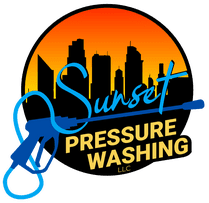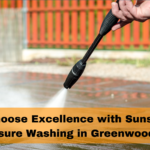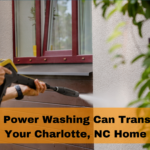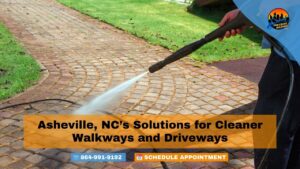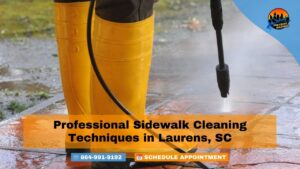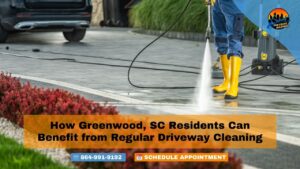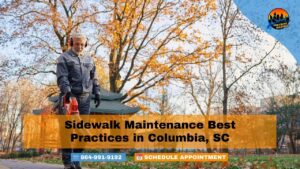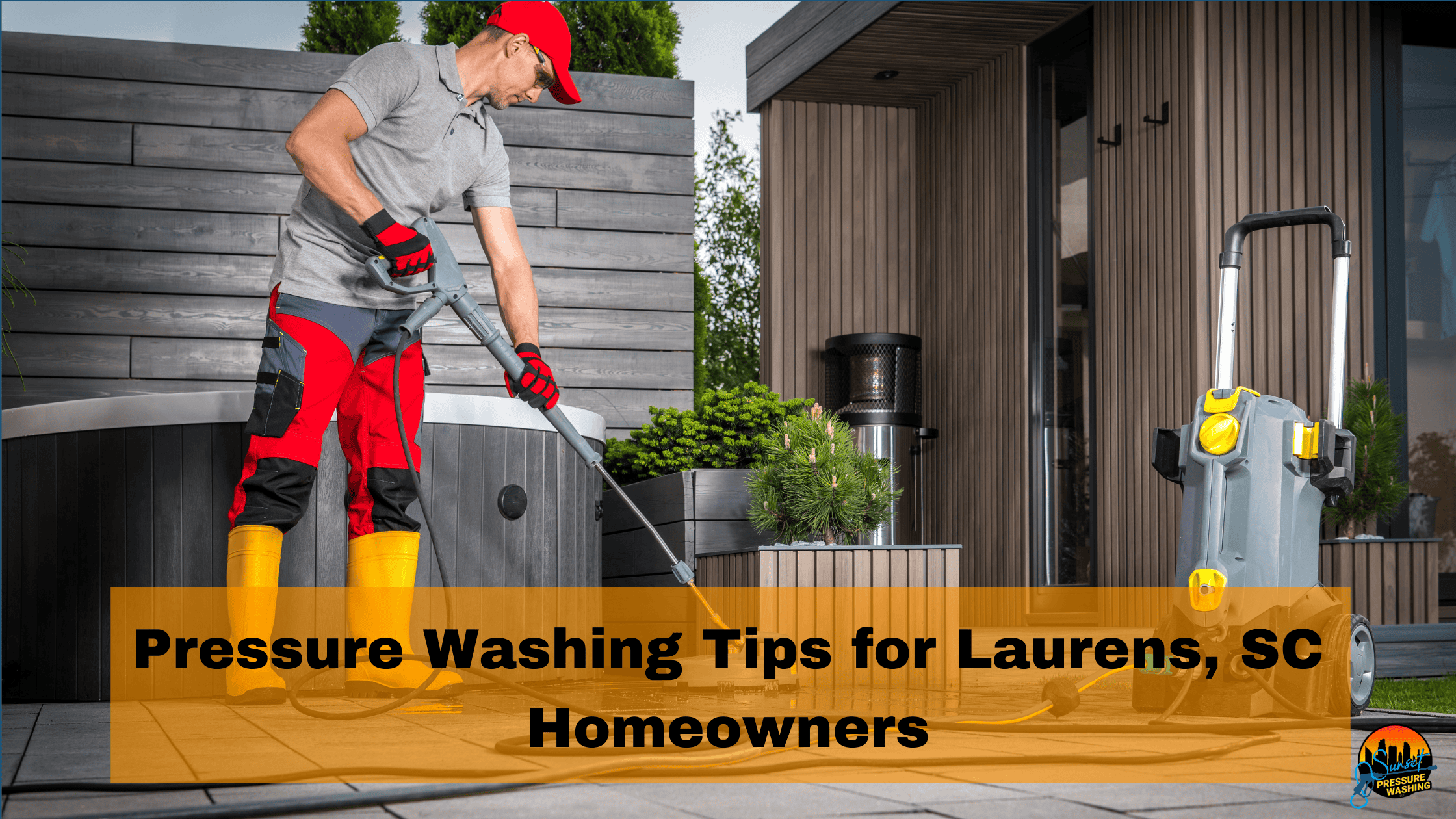
Pressure Washing Tips for Laurens, SC Homeowners
Pressure washing is an effective way to enhance the curb appeal and longevity of your home in Laurens, SC. With the local climate contributing to mold, mildew, and other stubborn residues on your home’s exterior, knowing how to properly pressure wash is essential. Here’s a comprehensive guide to help Laurens homeowners get the best results from pressure washing.
Understanding Pressure Washing Equipment
When embarking on a pressure washing project in Laurens, SC, equipping yourself with the right tools is crucial for both effective cleaning and safeguarding your property. Here’s a detailed guide to the various components of pressure washing equipment.
Types of Pressure Washers
Electric Pressure Washers are suited for lighter tasks such as cleaning patios and outdoor furniture, offering ease of use and quieter operation. Gas Pressure Washers, on the other hand, are designed for more demanding jobs, like cleaning large driveways and removing tough stains, providing greater power and mobility.
Pressure Washer Power (PSI and GPM)
The effectiveness of a pressure washer is measured in PSI (Pounds per Square Inch), indicating the pressure of water output, and GPM (Gallons Per Minute), which measures the flow rate of water. High PSI is essential for tough jobs, while a high GPM covers more area quickly.
Nozzles and Tips
Adjustable Nozzles allow you to modify the spray pattern and pressure on the fly, which is convenient for diverse cleaning tasks. Specific-Degree Nozzles range from pinpoint to wide spread, suited for different types of surfaces and levels of dirt accumulation.
Hoses and Reels
High-Pressure Hoses are crafted to endure the high-pressure water flow, and are available in various lengths. Hose Reels help manage and store these hoses effectively, preventing them from kinking and wearing out.
Pumps
Axial Cam Pumps are common in residential models and suitable for moderate usage, while Triplex Pumps are built for frequent or professional use, offering durability and efficient performance.
Detergent Systems
Some models include Onboard Tanks for detergent, which help in mixing cleaning solutions directly with water, enhancing cleaning power. Siphon Tubes offer a practical solution for using detergent from external containers, ideal for larger scale tasks.
Cleaning Attachments
Surface Cleaners are attachments designed to clean extensive flat areas efficiently. Rotary Brushes use the water flow to gently scrub surfaces, perfect for more delicate cleaning jobs like vehicle washing.
Safety Features
Safety enhancements such as Thermal Relief, which prevents overheating by discharging hot water from the pump, and Low Oil Shutdown, which protects the engine by turning it off when oil levels are too low, are vital for maintaining both the longevity of the equipment and the safety of the operator.
Preparing Your Home for Pressure Washing
Proper preparation is key to achieving the best results from a pressure washing session while protecting your property in Laureins, SC. Here are important steps to ensure that your home is ready for a thorough and safe cleaning process.
Clear the Area
Before you start, it’s crucial to remove any items that could obstruct the cleaning path or get damaged. This includes outdoor furniture, plant pots, and garden tools. For items that are too large or heavy to move, such as large patio furniture, cover them with waterproof tarps to protect them from water spray and debris.
Protect Landscaping
Your home’s landscaping can be sensitive to the detergents used in pressure washing and the force of the water. Shield plants and flower beds with tarps or plastic sheeting to prevent damage. It’s also a good idea to water your plants thoroughly before and after pressure washing, as this dilutes any chemicals that may come into contact with them.
Secure Windows and Doors
Ensure that all windows are closed and that doors are securely shut. Check the seals and weatherstripping around them to make sure they can withstand water intrusion. If you have any doubts about the integrity of these seals, apply waterproof tape as an extra precaution.
Cover Electrical Fixtures
Water and electricity are a dangerous combination. Cover all outdoor electrical fixtures like lights and sockets with plastic bags and secure them with tape. This is particularly important if your electrical fixtures are old or if you’re unsure about their waterproofing.
Check for Hazards
Look for any tripping hazards such as exposed roots, uneven pavement, or hoses on the ground. Clear these areas to ensure a safe working environment. Also, make sure the area is free of small objects that could become projectiles under high pressure.
Plan Your Approach
Determine the best starting point and the direction in which you will move as you clean. Typically, it’s best to start at a higher point and work downwards. Planning your route can help ensure that you don’t accidentally spray areas that have already been cleaned or allow dirty water to run over them.
Protect Yourself and Others
Make sure that family members and pets are kept inside while you are pressure washing. Equip yourself with safety gear such as goggles, gloves, and ear protection, especially if you are using a gas-powered model. These preparations help prevent accidents and injuries during the cleaning process.
Safety First
When undertaking pressure washing in Laureins, SC, prioritizing safety is essential to prevent injuries and damage to property. Here are the crucial safety guidelines to follow:
Wear Appropriate Protective Gear
Safety starts with the right attire. Equip yourself with protective gear before starting the pressure washing process:
- Eye Protection: Wear goggles to protect your eyes from flying debris and harsh cleaning chemicals.
- Durable Gloves: Choose gloves that will protect your hands not only from the pressure of the water but also from potential skin irritants found in cleaning products.
- Ear Protection: If you are using a gas-powered pressure washer, it’s advisable to wear ear protection to guard against the high noise levels.
- Closed-Toe Shoes: Wear sturdy, non-slip shoes to prevent slips and falls, and to protect your feet from high-pressure water streams.
Understand Your Equipment
Before you begin, make sure you fully understand how to operate your pressure washer. Familiarize yourself with the user manual, paying close attention to safety warnings and operating procedures.
- Pressure Washer Handling: Learn to handle the washer securely, ensuring you are always in control. The force of the spray can make the equipment difficult to handle.
- Start with Low Pressure: Begin with the lowest pressure setting and increase as needed to minimize the risk of damage or injury.
Secure the Area
Ensure the safety of others and protect your property:
- Keep Children and Pets Away: Ensure that children and pets are indoors or at a safe distance from the area where you are working to avoid accidental injury.
- Notify Neighbors: If you are working near property lines, inform your neighbors beforehand so they can also secure their pets and close windows.
- Clear the Area: Remove any tripping hazards and secure loose items that might be blown around by the pressure of the water.
Chemical Safety
If you are using chemicals or detergents with your pressure washer, handle them with care:
- Use Approved Chemicals: Only use chemicals that are recommended for use with pressure washers and are safe for the environment.
- Proper Storage and Handling: Store chemicals in a safe place away from children and pets, and use them according to the manufacturer’s instructions.
Be Aware of Electricity
Water and electricity can create hazardous conditions. Take precautions to prevent accidents:
- Avoid Electrical Outlets: Keep the stream of water away from electrical outlets, fixtures, and power lines.
- Use a Ground Fault Circuit Interrupter (GFCI): Ensure that your pressure washer is plugged into a GFCI outlet, which will protect you from electrical shock by shutting off the power if there is an imbalance.
Choosing the Right Cleaning Solutions
Selecting the appropriate cleaning solutions is crucial for effective pressure washing while ensuring the safety of your property’s surfaces and the surrounding environment in Laurens, SC. Here’s how to choose the right detergents and chemicals for your pressure washing needs.
Assess the Surface Type
Different surfaces require different types of cleaning solutions:
- Concrete and Brick: These materials can handle stronger detergents that remove oil stains, grime, and mildew.
- Wood: Use a cleaner specifically designed for wood to prevent damage and preserve the integrity of the surface. These cleaners usually help in maintaining the wood’s natural look while providing a deep clean.
- Vinyl Siding: Choose a mildew-resistant cleaner that can effectively remove dirt without damaging the siding.
Consider Environmental Impact
Opt for eco-friendly cleaning solutions that are as effective as chemical detergents but much safer for the environment:
- Biodegradable Solutions: These break down quickly after use, reducing environmental impact and are safer for plants and animals around your home.
- Phosphate-Free and Low VOCs: Cleaners without phosphates and low in Volatile Organic Compounds (VOCs) are less likely to contribute to pollution and are better for your health and the local ecosystem.
Understand the Cleaning Task
The nature of the dirt and debris you’re dealing with can dictate the type of cleaner required:
- General Dirt and Debris: Mild detergents are sufficient for general cleaning and will help preserve the surface’s original appearance.
- Oil and Grease: Specialized degreasers are effective for driveways or garage floors where oil spills are common.
- Mold and Mildew: Look for fungicidal washes that can kill mold spores and prevent their regrowth, particularly important in the humid South Carolina climate.
Read Labels and Follow Instructions
Always read the labels on cleaning solutions to ensure they are suitable for your particular pressure washer and the surfaces you are cleaning:
- Compatibility: Check if the cleaner is approved for use in a pressure washer, as some chemicals can damage the pump if not specified for such use.
- Concentration Levels: Follow the mixing instructions carefully. Some concentrates need to be diluted before use, which can vary depending on the cleaning strength required.
Effective Washing Techniques
Mastering effective washing techniques is essential for optimizing your pressure washing results while protecting your property in Laurens, SC. Here’s a guide to employing the right strategies for an efficient and thorough clean.
Start with the Right Setup
Before you begin, ensure your pressure washer is properly set up:
- Check Connections: Make sure all hoses and fittings are securely connected to prevent leaks.
- Choose the Right Nozzle: Select a nozzle that matches the cleaning task. Use wider angle nozzles for delicate surfaces and narrower ones for intense cleaning.
Plan Your Washing Pattern
Strategizing your approach can significantly enhance the cleaning process:
- Top to Bottom: Always start from the highest point of a surface and work your way down. This prevents dirty water from dripping over areas you’ve already cleaned.
- Section by Section: Break large areas into smaller sections. This helps maintain focus and ensures no spots are missed.
Maintain Optimal Distance and Angle
The distance and angle at which you hold the spray gun can affect the cleaning efficiency and surface safety:
- Proper Distance: Keep the nozzle about 12 to 18 inches away from the surface. Holding it too close can damage the surface, while being too far away will decrease the cleaning effectiveness.
- 45-Degree Angle: Spraying at a slight angle helps to lift and remove dirt more effectively than spraying directly at the surface.
Use Sweeping Motions
Using consistent, controlled motions helps provide an even clean:
- Overlapping Strokes: Use sweeping strokes and overlap each pass by several inches. This technique ensures that you don’t leave streaks or miss any spots.
- Even Pace: Move the spray in a steady, even pace to avoid uneven cleaning and minimize surface damage.
Adjust Pressure Appropriately
Different surfaces require different pressure settings:
- Softer Surfaces: Use a lower pressure setting for softer surfaces like wood siding or older masonry to avoid damaging the material.
- Harder Surfaces: Increase the pressure for cleaning concrete, stone, and other hard surfaces to effectively remove grime and stains.
Incorporate Detergents Correctly
Using detergents can enhance your cleaning power, especially on stubborn stains:
- Apply from Bottom to Top: Apply cleaning solutions from the bottom up to avoid streaks.
- Let It Sit: Allow the detergent to sit on the surface for a few minutes to break down the dirt and grime before rinsing.
Dealing with Mold and Mildew
In Laurens, SC, the humid climate can lead to frequent issues with mold and mildew on various surfaces around the home. Effectively addressing these stubborn contaminants not only improves the appearance of your property but also protects its structural integrity and the health of its occupants. Here are key steps to manage and eradicate mold and mildew through pressure washing:
Identify the Affected Areas
Before you begin, conduct a thorough inspection around your home:
- Common Locations: Look for mold and mildew on north-facing walls, shaded areas, near gutters, and anywhere moisture accumulates.
- Signs to Watch For: Mold and mildew typically appear as black, green, or white patches and can often be detected by a musty odor.
Choose the Right Cleaner
Selecting an appropriate cleaning solution is crucial for effectively killing mold and mildew:
- Mold-Specific Cleaners: Use detergents specifically designed to kill mold and mildew. These products typically contain fungicides or other ingredients that not only clean but also inhibit future growth.
- Eco-Friendly Options: Consider environmentally safe products that are less harmful to plants, pets, and people, especially if the affected area is near a garden or lawn.
Pre-Treat the Area
Applying your chosen cleaner effectively can make a big difference in the cleaning process:
- Direct Application: Apply the cleaning solution directly to the moldy areas. For surfaces that are heavily affected, a stronger concentration might be needed.
- Allow to Soak: Let the cleaner soak into the affected areas for the recommended time on the product label. This dwell time helps the solution penetrate and kill the mold spores.
Use Proper Techniques
When pressure washing mold and mildew, the right technique is important to avoid damaging your surfaces or spreading the spores:
- Gentle Pressure: Start with a lower pressure setting to avoid blasting mold spores into the air where they can spread.
- Even Cleaning: Use smooth, even strokes to cover the affected areas completely, overlapping each pass to ensure thorough coverage.
Rinse Thoroughly
After treating the area with the cleaner, a thorough rinse is crucial:
- High-Pressure Rinse: Use a higher pressure setting to rinse off the cleaning solutions and dislodged mold. Ensure all residue is removed by rinsing from top to bottom.
- Final Inspection: Check the area for any remaining signs of mold or mildew and repeat the cleaning process if necessary.
Prevent Future Growth
After cleaning, take preventive measures to minimize the likelihood of mold and mildew returning:
- Improve Ventilation: Increase airflow in problem areas to reduce moisture buildup, which supports mold growth.
- Regular Maintenance: Regularly clean and inspect these areas to catch and address new growth early.
- Moisture Control: Fix leaks, ensure gutters are clear and draining properly, and consider using dehumidifiers in particularly damp areas of your home.
Pressure Washing Different Surfaces
Pressure washing can rejuvenate various exterior surfaces of your home in Laurens, SC, but each material requires a specific approach to avoid damage and ensure thorough cleaning. Here’s how to effectively handle different types of surfaces with a pressure washer:
Siding (Vinach, Wood, Stucco)
- Vinyl Siding: Use a moderate pressure setting with a wider angle nozzle to prevent water from penetrating under the siding. Apply a mild detergent to remove mildew or stains and rinse from top to bottom.
- Wood Siding: Opt for a lower pressure setting and a gentle cleaner designed for wood. Keep the nozzle moving to avoid etching into the soft surface, and always spray along the grain.
- Stucco: Because stucco is porous and can accumulate dirt deeply, use a low-pressure setting with a cleaner that targets mold and mildew. Be careful to avoid chipping or damaging the texture.
Brick and Concrete
- Brick: Brick can withstand higher pressure, but its mortar can be vulnerable. Start with a lower pressure and increase as needed. Use a rotary nozzle for even cleaning and a specially formulated brick cleaner to remove efflorescence or staining.
- Concrete: Concrete driveways and walkways often harbor oil stains and tire marks. Use a high-pressure setting with a degreasing detergent. For deep stains, consider a surface cleaner attachment for a uniform and efficient clean.
Roofs and Gutters
- Asphalt Shingles: Never use high pressure on asphalt shingles as it can strip away granules. Instead, use a low-pressure spray with a cleaner that targets algae and moss.
- Metal Roofs: These can handle a bit more pressure but be cautious around seams and joints. A targeted metal roof cleaner can help remove oxidation without damage.
- Gutters: Use a low-pressure spray to clear out leaves and debris. Special gutter cleaning attachments can help reach inside gutters without using a ladder.
Decks and Patios
- Wood Decks: Use a nozzle that provides a gentle spray to protect the wood while still being effective at cleaning. A deck-specific cleaner can help brighten the wood and remove mildew without the need for excessive pressure.
- Composite Decking: Similar to wood, use a soft wash approach with a cleaner designed for composite materials to avoid damaging the surface.
- Patios (Stone or Pavers): These can generally withstand a higher pressure. Use a detergent that enhances the color of the stone and a rotary nozzle for even cleaning.
When to Hire a Professional
While DIY pressure washing can be effective for small jobs or regular maintenance, there are times when it’s advisable to call in a professional. In Laurens, SC, homeowners might consider professional pressure washing services under certain circumstances to ensure safety and achieve the best results. Here are scenarios when hiring a professional is recommended:
Large or Complex Jobs
- Extensive Properties: If your home or property is particularly large, a professional can handle the job more efficiently with industrial-grade equipment.
- Complex Architectures: Homes with intricate designs or hard-to-reach areas might require the expertise and specialized tools that professionals bring.
Delicate Surfaces
- Historic Homes: Older homes, especially those with historical significance, have delicate surfaces that need gentle care to avoid damage.
- Special Materials: Surfaces like sandstone, soft wood, or certain composites might require specific low-pressure techniques and specialized cleaning solutions that professionals are trained to handle.
Safety Concerns
- High Areas: Cleaning high places such as second-story walls, roofs, and gutters poses significant fall risks. Professionals have the necessary safety equipment and insurance to manage these risks.
- Electrical Hazards: Professionals know how to safely work around electrical installations and can navigate these risks without causing damage or endangering themselves.
Time and Cost Efficiency
- Avoiding Damage: Incorrect pressure washing techniques can lead to expensive repairs. Professionals guarantee their work, reducing the risk of costly mistakes.
- Cost of Equipment: Renting or buying the appropriate pressure washing equipment can be expensive. Hiring a professional can be more cost-effective when considering the high cost of acquiring and maintaining the right gear.
Enhancing Your Home with Expert Pressure Washing Services
whether we’re taking on the task ourselves or enlisting professional help. Selecting the right tools, using the appropriate cleaning solutions, and applying the correct techniques are all important to maintain the beauty and structural integrity of our homes.
If you’re in need of professional pressure washing services or some advice for your next DIY project, we recommend reaching out to Sunset Pressure Washing. Our commitment to excellence and customer satisfaction is detailed About Us. You can easily book our services through our booking page, taking the first step towards revitalizing the appearance of your home.
